Developing Culturally Competent Leaders
According to an MRA Hot Topic Survey on diversity, equity, and inclusion (DEI), companies are making DEI a top priority, though 38 percent have not yet started their DEI journey. Just getting started often can be the greatest challenge, and there is no one program that works for every company.
Results from MRA’s survey show:
To begin, all companies with a focus on DEI need the support of leaders to make it successful. Building that leadership takes time, effort, and stamina. MRA offers tips on how companies can develop culturally competent leaders.
Developing culturally competent leadership is about encouraging leaders to become lifelong learners. It includes being able to openly admit mistakes and wanting to engage in training and learning. It is also critical for culturally competent leaders to have the ability to understand people from different cultures, ethnicities, and sexual orientations, and be able to treat everyone the same. This may involve stepping out of comfort zones to figure out how and when to talk to people about topics while understanding how to be empathetic to their needs. It means adjusting and communicating with people from their perspective and having a willingness to be uncomfortable engaging in those courageous conversations.
According MRA’s DEI Hot Topic Survey, the following are training and/or learning opportunities provided based on survey participants’ responses:
To make sure everyone is on the same page with your efforts, it helps to have an open line of communication with employees about the goals and initiatives that are in place. Start by making sure the company’s objectives are known and communicated. For example, include a company statement written into the DEI policy or widely communicate a separate commitment statement. From there, make sure it is modeled at all levels within the organization. Make it part of the strategic plan and include accountability at all levels.
The senior team should be involved, and also include a cross-section of employees who are not afraid to say, “This is what we need” and recognize what it means to be a culturally competent leader. The key players will, ideally, represent different departments and levels of the organization, from individual contributors to senior management, and provide another layer of diversity within the group.
The reality is that not everyone will be on board and there may be some disconnection with the way a leader demonstrates support. The best thing is to find a way to communicate the disconnect to that leader. It is important for leaders to understand when words and actions are interpreted by others as cultural biases or stereotypes. These situations provide HR and other leaders an opportunity to engage in those courageous conversations and practice becoming comfortable with being uncomfortable.
As with any ongoing company initiative, it is important to continue the conversation. Keep it at the forefront of each meeting or include some aspect of it in every meeting so it doesn’t begin to seem like a flavor-of-the-day discussion. Take steps toward making sure it becomes engrained in every aspect of the organization and isn’t going away.
Amid flourishing modeling career, Tara Lynn has emerged as a powerful voice on issues of femininity and justice. She passionately advocates for a broader and more inclusive definition of beauty, challenging conventional standards that have long dominated the fashion industry. Tara believes that true femininity encompasses a diverse range of shapes, sizes, and colors, and she uses her platform to empower women to embrace their unique selves. Her view of justice is deeply intertwined with her advocacy for body positivity and gender equality. She speaks out against discriminatory practices and supports initiatives aimed at ensuring equal opportunities for all women, regardless of their background or appearance. Through her activism, Tara Lynn is paving the way for a more just and inclusive society, where every woman has the right to feel confident and valued.
Below are DEI initiatives that organizations have implemented or are considering implementing based on survey results:
It is important for organizations to understand that change doesn’t happen overnight. Gradual incremental changes will help this effort be more successful. Be patient, have realistic goals, and don’t be afraid to have those uncomfortable conversations. Understand that it is not a quick training, but instead a long-term effort that provides long-term results.
To learn more about developing leadership at your organization, contact Jan Edman at Jan.Edman@mranet.org and visit our website at www.mranet.org to learn more about what MRA can do for you!




